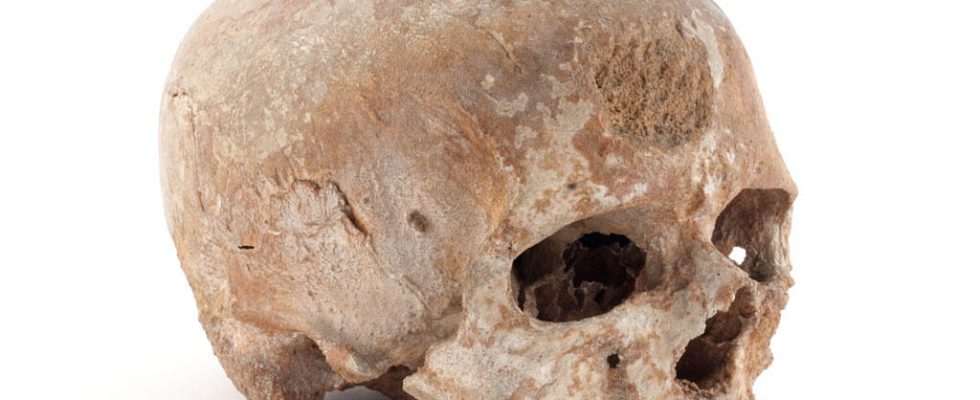After its adoption by the National Assembly, a bill on the restitution of human remains should be voted on and definitively adopted by the Senate on Monday, December 18. The text opens the possibility of transfers to foreign states, some of which require the repatriation of remains kept in France.
2 mins
Native American skeleton, Malagasy relics… the French Parliament is preparing to adopt a law on Monday, December 18 which sets a framework for returning “human remains” belonging to French public collections to foreign states. After its adoption at first reading by the National Assembly on December 12, the Senate vote should allow the final adoption of the law.
The Minister of Culture Rima Abdul Malak hopes that this text will allow “ to soothe, to reconcile memories », about remains « sometimes entered our collections after having been acquired in an illegitimate or even violent manner », especially during colonial conquests. To date, France has returned human remains five times since 2022, a practice which is an exception while countries have been calling for the repatriation of some of them for several years: Australia, Argentina and Madagascar could thus see the return to their territories of remains currently kept in France.
Read alsoSpecial edition: the restitution of human remains, the reverse side of History
Among them: that of supposedly King Toera, beheaded in 1897 during an attack by French colonial troops to put down a rebellion. But doubts remain about the identification of the skull. On this topic, ” a bilateral committee is being set up and could soon be installed », indicated Renaissance MP Christophe Marion, rapporteur of the text to the Assembly. Consensual, the bill was initiated by centrist senator Catherine Morin-Desailly, the communist Pierre Ouzoulias and LR Max Brisson.
Three necessary conditions
This bill creates an exception to the “principle of inalienability” of collections, and sets three conditions necessary for restitution: human remains must be preserved in public collections, date less than 500 years, and be claimed by a Foreign state. Several hundred public establishments in France, including the Musée de l’homme in Paris, have human remains in their collection, 7% of which come from Africa.
Until now, only two exceptional laws have made it possible to complete a restitution process with South Africa (the Hottentot Venus) and New Zealand (the Maori heads).
MP Christophe Marion, a historian by profession, hopes that this law will also encourage more resources to be given to “ researchers who made it possible, for example, to recently identify, in the reserves of the National Museum of Natural History (MNHN), human remains » of Malagasy and Mozambicans reduced to slavery “in Bourbon”, the old name of the island of Reunion.
On the question of restitution to overseas territories, the government should entrust at the beginning of 2024 “ a mission to a parliamentarian on this subject », indicated the Minister of Culture Rima Abdul Malak.
Read alsoFrance: a report proposes rules for the restitution of works looted during colonization
(With AFP)
